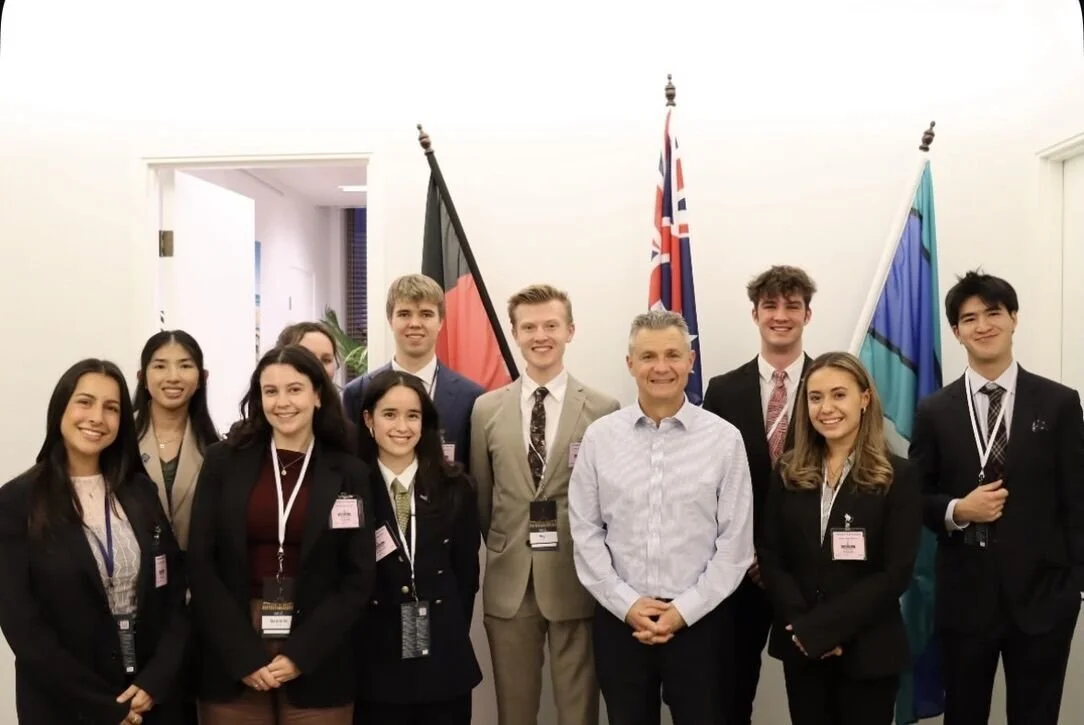The National Leadership Forum: The Ripple Effect of Servant Leadership
By Jess Thuring
The National Leadership Forum
In 2018, I walked into the National Leadership Forum in Canberra as a delegate, wide eyed, curious, and doing my best to look like I knew what I was doing. The place was full of young leaders in freshly pressed suits or ones borrowed from home, each of us hoping no one could see how new we were to it all. We didn’t see it then, but all of that was quietly teaching us that leadership has less to do with leading and everything to do with serving.
Coming Full Circle
This August, I returned, but this time as a small group facilitator. It was a full circle moment. Different faces, new stories, but the same heartbeat: exploring what leadership really means when it begins with service.
There were big moments I’ll never forget like sitting inside Parliament House, hearing from the Prime Minister, and listening to Mack Horton talk about his podium protest and what it costs to stand firm in your values. But the moments that stayed with me most weren’t on the main stage. They were the quieter ones, sitting in small groups, hearing people open up about failure, fatigue, and the quiet doubts that come with responsibility.
It reminded me how easy it is to assume others have it all together, when in truth, everyone is carrying something. Those moments of honesty reshaped how I think about leadership, success, and even myself.
Servant Leadership
Throughout the week, one question from Layton Fraser echoed in my mind:
“Are you a leader who serves, or a servant who leads?”
It made me pause. Because when leadership starts with service, it doesn’t stay contained, it ripples outward.
This idea sits at the heart of Servant Leadership, a philosophy first described by Robert K. Greenleaf in the 1970s. Greenleaf believed that the best leaders begin with a desire to serve, that leadership grows naturally from that instinct. The focus isn’t power or recognition, but the growth and wellbeing of others. When leaders centre their energy on service, they create conditions where people can thrive, and where trust grows naturally.
The Ripple Effect
You could see that ripple in real time at the Forum. When one person showed humility, others followed. When someone shared their story with honesty, it gave others permission to do the same.
Harvard researcher Amy Edmondson calls this sense of openness psychological safety, the shared belief that a team is safe for candour, vulnerability, and learning. That’s exactly what those small groups became: spaces where people could take off the armour, be real, and connect in ways that reminded us all that leadership is deeply human.
And it’s not just a feeling. Research continues to show that when leaders serve first, their teams experience less burnout, more trust, and a stronger sense of belonging. When leaders serve, they create cultures that hold people up and bring out their best.
That same ripple is what we see in our work at Interchange. When leaders anchor themselves in service to their people, their purpose, and their values, everything around them lifts. Engagement rises. Burnout falls. Culture moves from words to behaviours you can see and feel.
Because leadership isn’t about the title, it’s about the tone you set, the space you create, and the example you live.
Sometimes it’s as simple as listening longer, giving credit away, or creating space for someone else to step up. Those small acts might not make headlines, but over time, they change the temperature of a team.
Leaving the Forum, I was reminded that the people who make the biggest difference aren’t chasing titles or influence. They’re just people who care deeply and act on it.
Because when leadership begins with service, it doesn’t end with you — it grows through others. Maybe that’s what coming full circle is really about: understanding that leadership isn’t about being out front, it’s about lifting others up.



